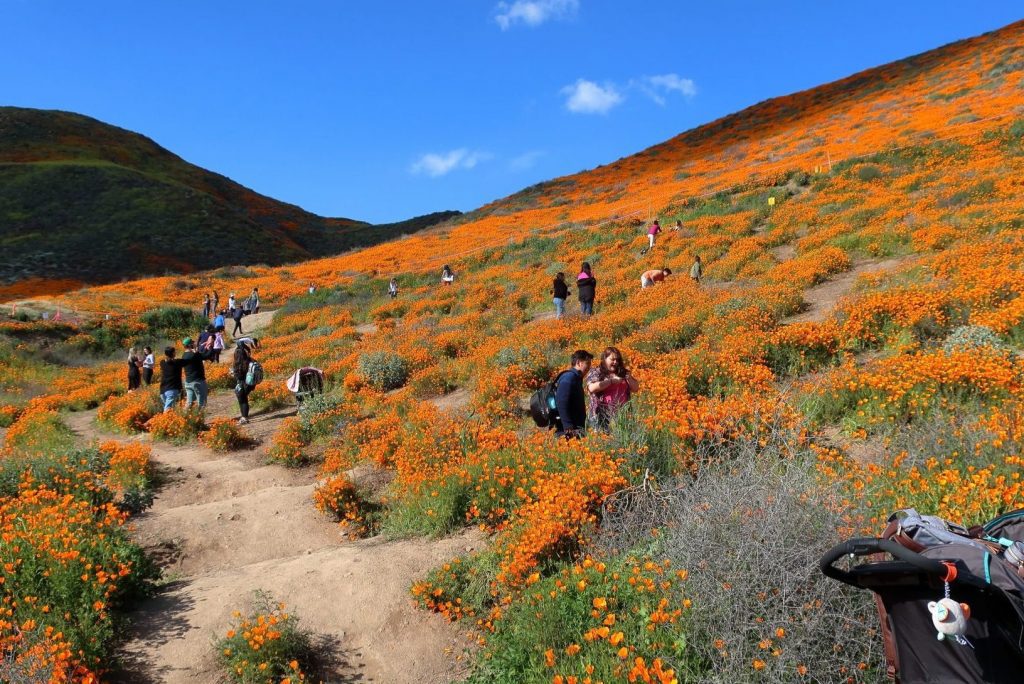How a 'Poppy Apocalypse' Could Turn Into Tourism Gold for a Small California City

Skift Take
Lake Elsinore, California wanted tourists — but not the kind that gridlocked its streets and trampled its mountainsides. The city is trying to learn from intense short-term overtourism to prepare for a more manageable future.
The attention started humbly enough: a trickle of stories about the poppy bloom in Lake Elsinore, a city in Southern California.
In mid-February, Forbes included the area in a list of the 16 most beautiful places to visit this spring, calling the upcoming bloom "one of the most spectacular wildflower experiences in the lower 48."
Reuters followed a couple weeks later with a vibrant slideshow and video, and before long all the coverage — from local to global — and social media posts created a fervor.
"The next weekend, everybody was out," said Lake Elsinore Mayor Steve Manos, who came up with the term "poppy apocalypse," in an interview Wednesday night. "We ended up having absolute gridlock on both our freeway and then interior roads."
Earlier this month, his city of roughly 63,000 people unexpectedly joined destinations all over the world that have struggled with overtourism, from Dubrovnik to Iceland to a sunflower patch in Ontario.
While tourism boards, tour operators, and travel agents have looked for ways to spread visitors out by promoting off-season visits or less-traveled corners of a city, Lake Elsinore is facing a different kind of problem: pop-up overtourism, the kind that lasts fo
